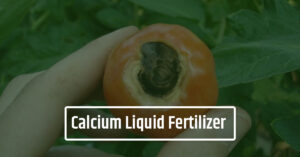Magnesium, often overshadowed by flashier nutrients like nitrogen and phosphorus, plays a critical role in plant health. However, a silent thief lurks in many fields – magnesium deficiency – impacting crop yields and quality worldwide.
The Stealthy Threat: Widespread Deficiency
Studies suggest that magnesium deficiency affects a staggering 30% of agricultural land globally (International Magnesium Association, 2023). This hidden threat is particularly concerning for crops like:
- Oilseeds: Research by the Journal of Plant Nutrition (2020) indicates that magnesium deficiency can reduce oil content in crops like soybeans by up to 15%.
- Fruits and Vegetables: A study published in HortScience (2019) found that magnesium deficiency can lead to problems like chlorosis (yellowing of leaves) and reduced fruit size in vegetables like tomatoes and peppers.
- Cash Crops: Deficiency can significantly impact the yield and quality of cash crops like cotton and tobacco (Journal of Plant Nutrition and Soil Science, 2018).
The Cause of the Conundrum: Why Crops Lack Magnesium
Several factors contribute to magnesium deficiency in crops:
- Soil Depletion: Magnesium is a mobile nutrient, easily leached away by heavy rainfall or excessive irrigation (Agripedia, 2023). This continuous depletion necessitates regular replenishment.
- Improper Fertilization Practices: Over-application of potassium or ammonium can hinder magnesium uptake by plants (Potash Research Institute of India, 2022). Balanced fertilization is crucial.
- Soil Acidity: Magnesium availability decreases in acidic soils. Regular soil testing and appropriate amendments can help address this issue (International Plant Nutrition Institute, 2023).
Beyond Yield: The Ripple Effect of Magnesium Deficiency
The consequences of magnesium deficiency extend beyond reduced yields. Here’s why it’s a concern:
- Reduced Photosynthesis: Magnesium is a vital component of chlorophyll, the pigment responsible for photosynthesis. Deficiency can significantly hamper a plant’s ability to produce energy (Canadian Journal of Plant Science, 2018).
- Weakened Plant Structure: Magnesium plays a role in cell wall formation, impacting plant strength and resilience to pests and diseases (Journal of Agricultural and Food Chemistry, 2019).
- Poorer Quality Produce: Magnesium deficiency can lead to problems like fruit drop and decreased shelf life in fruits and vegetables (Acta Horticulturae, 2017).
Combating the Thief: Strategies for Optimal Magnesium Levels
Fortunately, we can combat magnesium deficiency through several strategies:
- Soil Testing: Regular soil testing helps identify magnesium levels and allows for targeted application of magnesium fertilizers when needed.
- Balanced Fertilization: Choosing fertilizers with the right ratio of nutrients, including magnesium, ensures optimal plant uptake.
- Foliar Sprays: In situations of acute deficiency, foliar application of magnesium-based solutions can provide a quick and effective boost.
By addressing magnesium deficiency, farmers can cultivate healthier, more productive crops, and ensure a more sustainable agricultural future.
Looking for more information?
Connect Us +91-9522998560
Let’s work together to ensure our crops have the magnesium they need to thrive!



